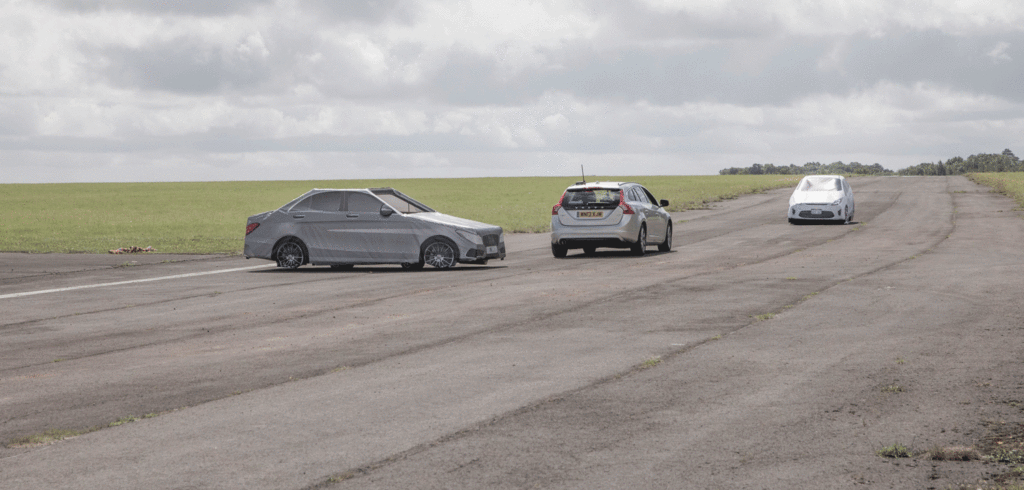AB Dynamics is to contribute key technologies to the German Pegasus project, a €34m (US$38.3m) national initiative to establish industry-wide quality standards and test procedures for automated vehicle technologies and functions.
The four-year Pegasus project, part-funded by the German Federal Ministry for Economic Affairs and Energy, brings together 17 partners from the German automotive industry, including OEMs, suppliers and research institutions. The objective of the initiative is to define standardized test procedures, develop a flexible and continuous tool chain, and create a common method of safeguarding highly automated driving functions.
Within Pegasus, TÜV SÜD is responsible for testing on proving grounds, for which it will use AB Dynamics’s Flex-0 for by-wire control, path following for active guidance and Synchro for synchronization of targets and test vehicles.
In addition, AB Dynamics’s range of hardware, including driving robots, Guided Soft Targets and the LaunchPad platform for vulnerable road user targets, will be used to bring test scenarios to life. TÜV SÜD will use a Kia Niro fitted with a PolySync Drive Kit for by-wire control.
“Proving the safety and reliability of automated and autonomous systems before they are permitted to share road space with other vehicles remains a major challenge facing the automotive industry,” said Robert Matawa, lead engineer testing and certification HAD, TÜV SÜD.
“While the technical building blocks for autonomous control exist, the task of training a self-learning system to cope with the complexity of the real world requires new methods and approaches. The standards to which a vehicle would be certified, and even the test procedures to demonstrate compliance, have yet to be developed and agreed upon.”
AB Dynamics will support the Pegasus project’s drive for consistency in two important ways. Firstly, the company’s common software protocols and open interface will reduce engineering workload while also simplifying data management – enabling direct comparison of results from different test regimes. Secondly, its range of complementary track test technologies will enable testing to be conducted cost-effectively in close proximity to a variety of other road users and vehicle types.
“Testing autonomous functionality necessitates highly complex traffic scenarios involving multiple vehicles that are positioned accurately and whose movements must be perfectly synchronized; otherwise the significance of data from repeated tests severely diminishes,” explained Andrew Pick, business director – track test systems, AB Dynamics.
“We can supply Guided Soft Targets for use where there is the potential for collision. Other ‘background’ traffic, at minimal risk of collision, can be populated by regular cars using Flex-0 control as a cost and time-effective solution. Even vulnerable road users, such as pedestrians and cyclists, can be included by mounting dummies on our LaunchPad or SPT motorized platforms. The movement of every entity is coordinated through our Synchro system using TrackFi wireless telemetry.”
Matawa concluded, “Effective safety approval for automated vehicle functions would demand unlimited time and resources unless we develop new methods and tools. The Pegasus project aims to provide these by creating a database of relevant scenarios from multiple sources, and a common, complete tool chain with which to process it. AB Dynamics supplies many of the key ingredients that enable us to fulfil this important task.”


